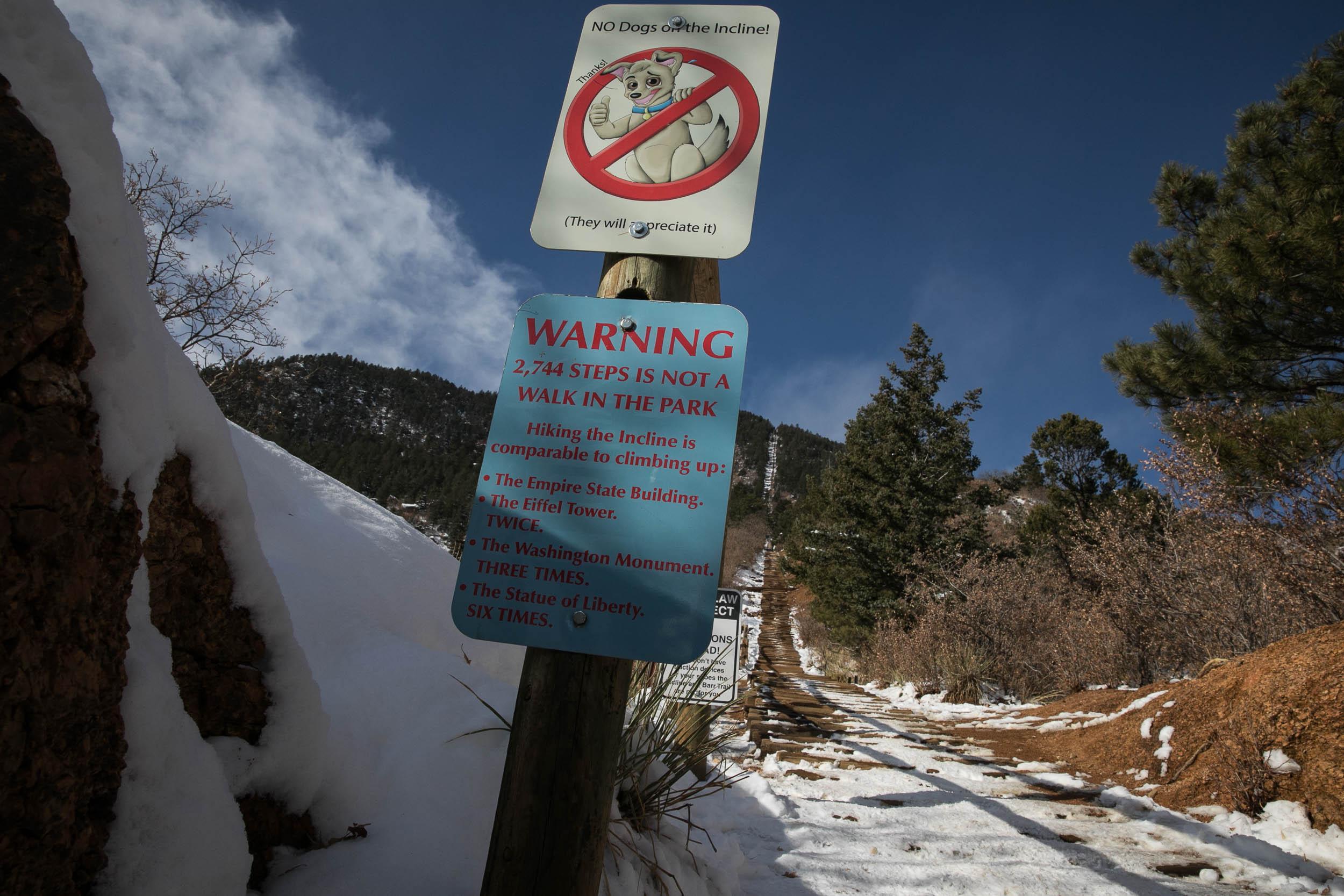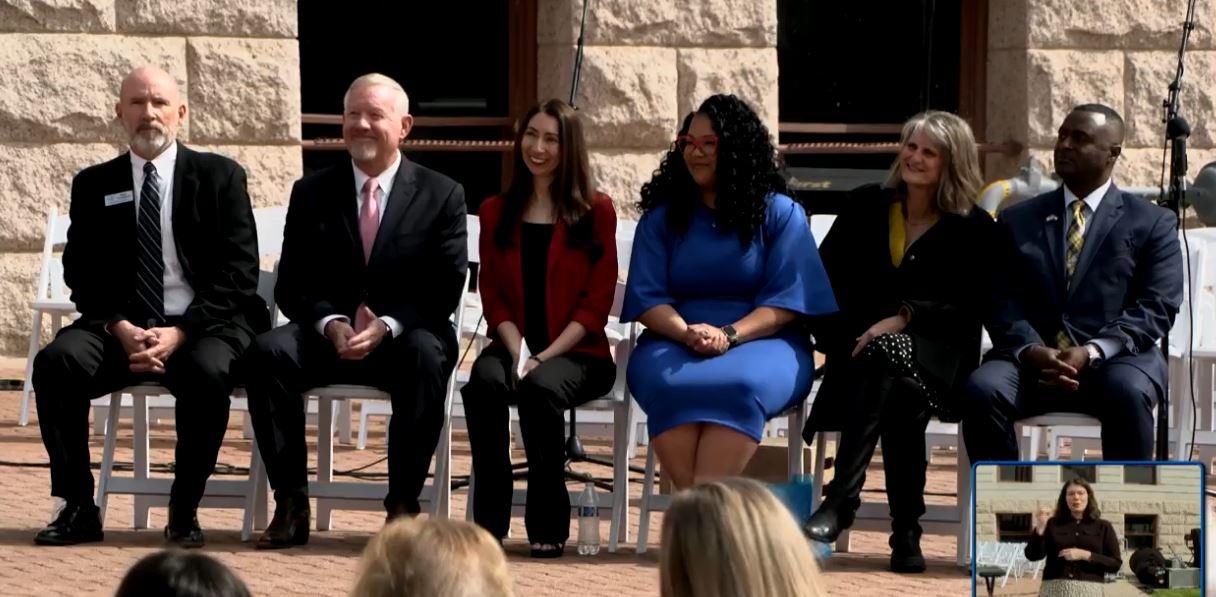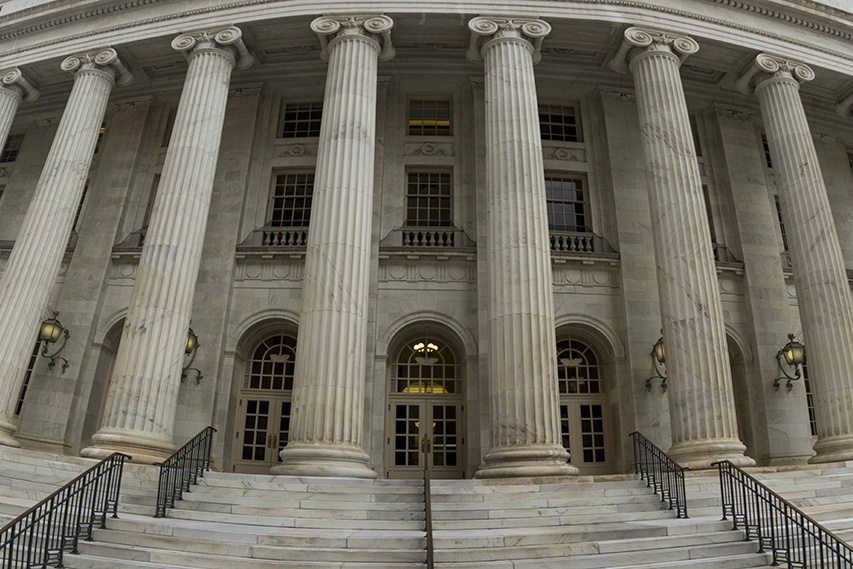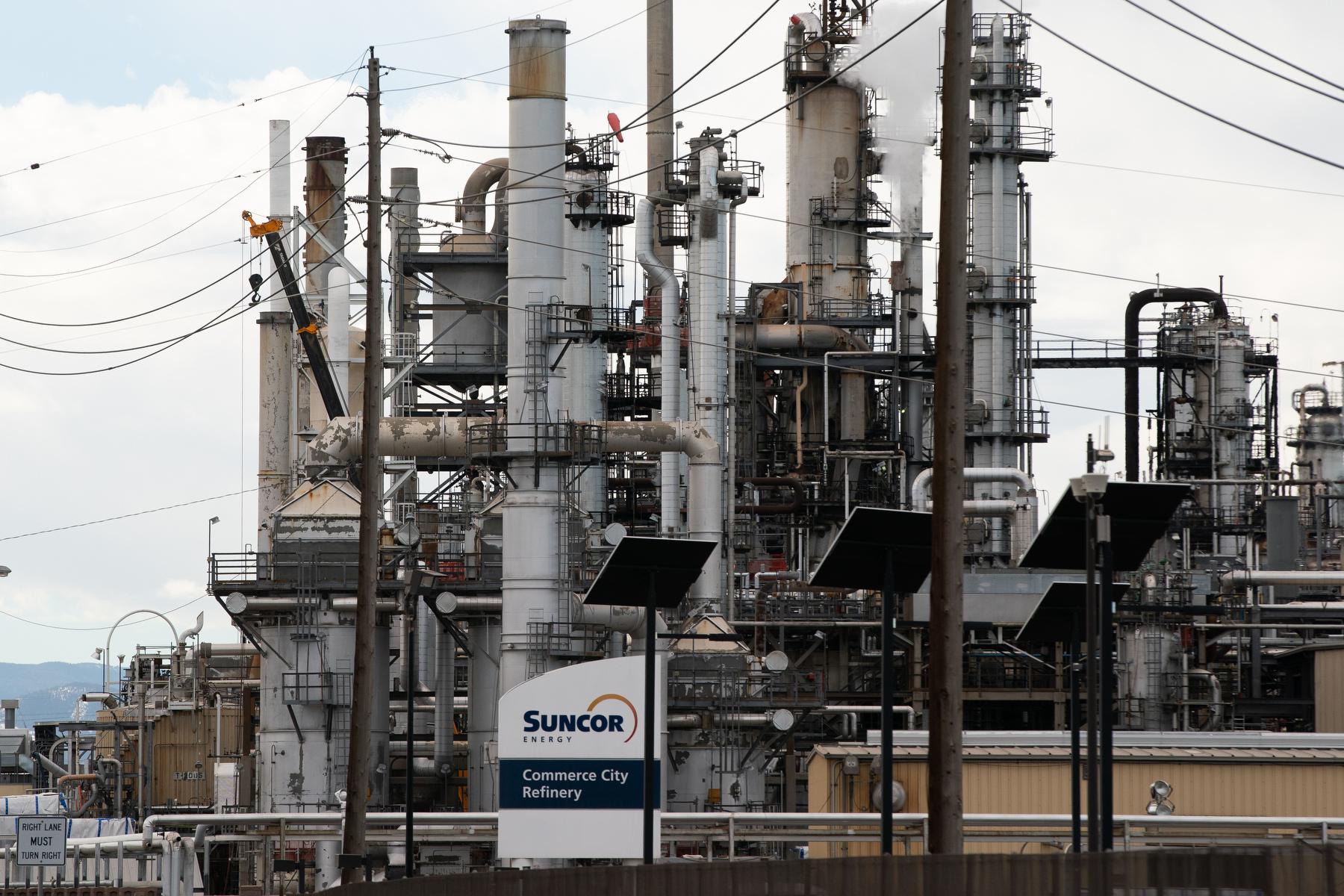
The Trump Administration has put a 30-day pause on its proposed tariffs on Canadian imports. This is, however, just a pause, and that means Colorado could still see impacts if the administration eventually decides to press play.
“We have never seen the extent of these sorts of tariffs on energy imports with our two trade neighbors, Mexico and Canada, which are a foundation of the American economy. We have not seen this certainly in my tenure,” Skyler McKinley from the American Auto Association told CPR news.
As a motorist advocacy organization, AAA tracks gas prices and oil markets.
McKinley said when potential major changes to the oil and gas market happen, “folks usually give me a call.”
Even though these tariffs — 10% on energy imports, 25% on everything else — would be unprecedented, McKinley notes it’s within the president's power to enact them if he believes they will achieve his stated goal of reducing the flow of people and drugs across the borders.
“I think it's important to take the politics out of this and understand that this is a policy choice,” McKinley said before the pause was announced. “In the short term, I'm confident it will raise the price consumers pay at the pump, but what it does long term is anybody's guess.”
Both President Donald Trump and Canada's Prime Minister released statements on social media about the tariff freeze.
Trump celebrated measures he said Canada had agreed to in order to avoid the tariffs. However, one major element, a deal for Canada to invest $1 billion Canadian dollars into trying to stop drug trafficking and migration at the border, isn’t an outcome of the tariff pressure; it was announced previously.
“I have also signed a new intelligence directive on organized crime and fentanyl and we will be backing it with $200 million,” Prime Minister Justin Trudeau tweeted. “Proposed tariffs will be paused for at least 30 days while we work together.”
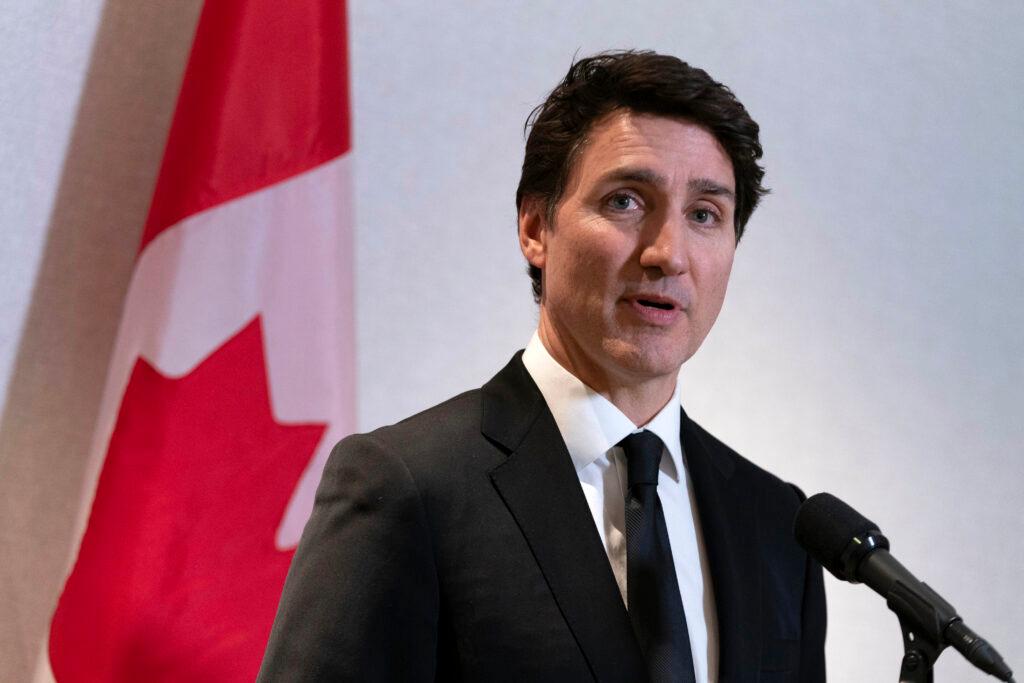
For his part, Trump posted on Truth Social, “I am very pleased with this initial outcome, and the Tariffs announced on Saturday will be paused for a 30 day period to see whether or not a final Economic deal with Canada can be structured.”
A spokesperson from Gov. Jared Polis’s office said if the tariffs do eventually go into effect, the governor will continue to focus on affordability.
“Colorado is a national leader among states in building strong international trade relations, especially with our partners in Mexico and Canada, that strengthen our economy and will continue to do so even if these misguided tariffs eventually go forward. Governor Polis will continue to focus on lowering the cost of living for Coloradans even in the face of these harmful 25% taxes on Coloradans that will shut down businesses, hurt families, and simply make no sense.”
In Colorado, energy tariffs could hit at the pump
Canada is a major producer of the oil that Coloradans use to fill up their gas tanks.
The U.S. is technically the number one producer of oil in the world, however, there is a major difference between the oil produced in the U.S. and Canadian crude oil. Broadly, the two differ when it comes to weight and sulfur content. America produces light sweet crude while Canada’s product tends toward heavy and sour.
In 2023, 60% of U.S. crude oil imports originated in Canada, up from 33% in 2013.
“Our refining capacity is set up to run off the crude imports we've always brought in from Canada and Mexico,” McKinley said. That means, “Coloradans generally if everything plays out and this becomes a longer-term issue, (can) expect anywhere from 10 cents to a quarter per gallon increase just as a function of the tariffs alone.”
Suncor, a Canadian company, has a refinery in Commerce City that contributes $2.5 billion to Colorado's economy annually. The refinery accounts for about 40% of the state's market for refined petroleum products.

But Ian Lange, a professor of economics at the Colorado School of Mines with a background in energy economics, believes a 10% tariff wouldn’t have all that heavy an impact on oil production at the facility; he said the plant itself doesn’t take in “too much Canadian crude oil.”
“ It seems hard to believe that they're really going to ‘take their ball and go home,’ Lange said. But if somehow the flow of oil were to stop, Coloradans would be hurting. The last time the plant shut down, due to damage from cold weather, Colorado gas prices increased by 51%.
Taking a broader look at the implications of the tariffs, currently, the largest threat to Colorado would be their potential to reshuffle markets in the Midwest. If it comes down to it and places like Indiana and Illinois have to do things differently, they might pull back on oil from the Rocky Mountain region.
Lange says if that materializes, Colorado prices will surely go up.
“ That has this knock-on effect. Where our prices go up because other parts of the U.S. can't get the inputs that they need,” Lange said. “ Eventually it's going to muck up the system. There'll be higher costs as a result. For things like gasoline, kerosene, jet fuel, stuff like that.”
Gov. Jared Polis shared a statement on his social media Monday criticizing the proposed tariffs calling them “a tax on Coloradans and American families, and increase the cost of everything from food to gas. Trump’s tariffs make us less competitive, hurt people and quite frankly make no sense.”
Colorado and Canada have had a long time economic relationship. According to a 2024 report from the Colorado office of Economic Development and International Trade, trade with Canada supports 146,800 jobs in the state, as well as 21,100 employees at Canadian-owned businesses located here. Colorado’s top exports to Canada are meat; industrial machinery, including computers; and optical, medical, and surgical equipment.
In 2023, Colorado sent $1.8 billion worth of goods to Canada, making the country Colorado’s largest export partner, accounting for 18% of Colorado’s export trade.
McKinley, from the American Auto Association, says when it comes to tariffs’ potential impact on getting around, Coloradans would likely notice an increase in the cost of automobile parts before the numbers go up at the pump.
“This is a function of decades of policy choices where we interlinked our manufacturing economies,” He told CPR News. “You're going to start to see that markup faster just because of where we get our auto parts from. So if you're buying a spark plug, you might expect to pay 25% more on that.”
So if your Check Engine light is on and you’ve been putting off a trip to the mechanic, it might be something you want to stop procrastinating about, before there’s any risk of the trade war firing back up.
- From liquor to beef, Colorado businesses fret over looming trade war with Canada and Mexico
- Two weeks of dramatic moves have Trump’s supporters in Colorado cheering, and opponents distraught
- Colorado’s economic outlook could show ‘some weakening’
- Meet the Colorado model rocket company stockpiling parts to get ahead of potential Trump tariffs

